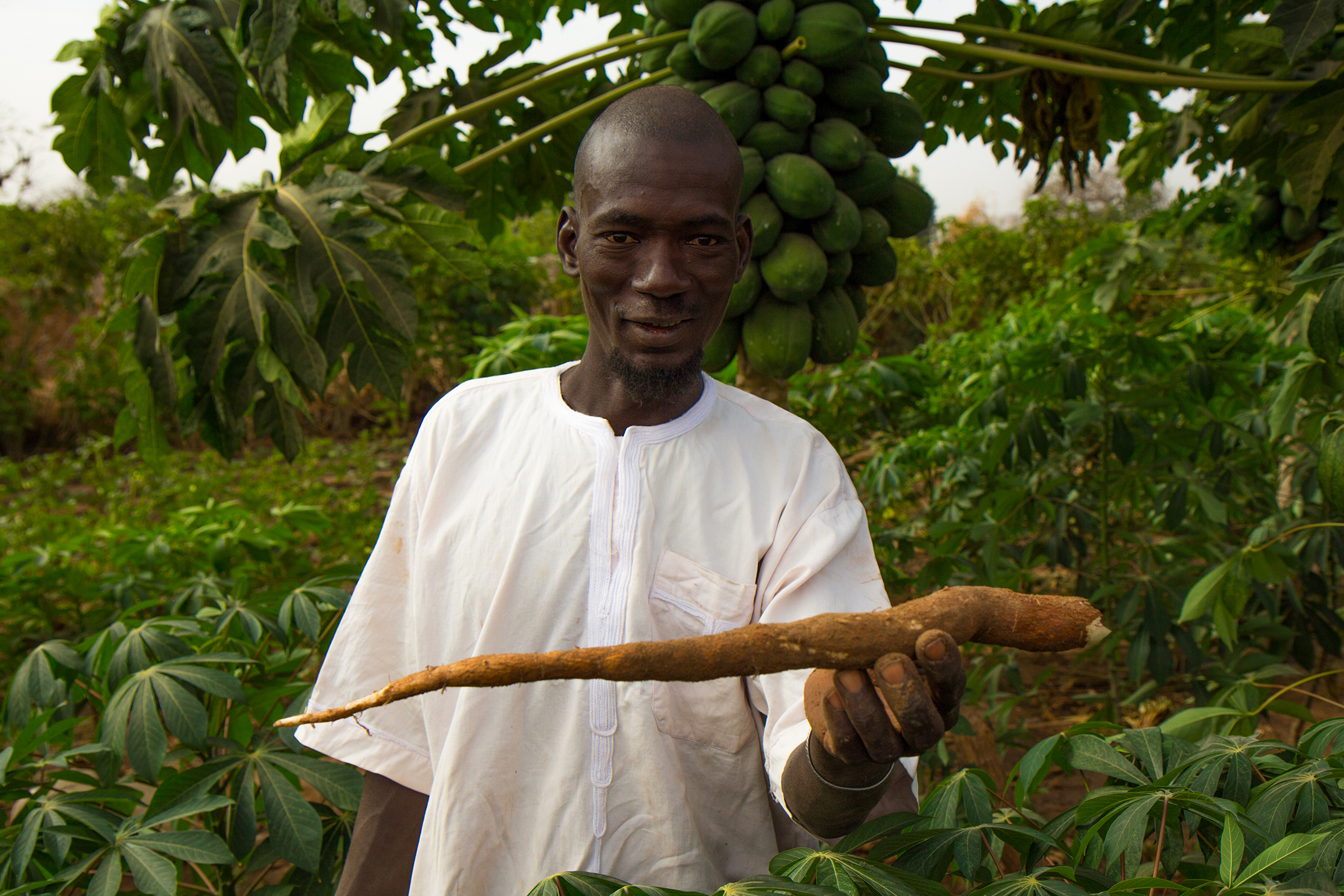Forest Garden /fôrəst ɡärd(ə)n/ - noun
January 15, 2020
Definition: A sustainable, multi-layered 
Key Impacts:
Forest Gardens permanently increase the income of impoverished families by maximizing and diversifying on-farm income sources and products that can be sold throughout the year, while at the same time reducing the risks associated with dependence on one or two crops.
Forest Gardens empower hungry families to feed themselves by providing a more balanced and nutritious diet through a diverse food production system that produces fruit and vegetables throughout the year.
Forest Gardens revitalize degraded lands and increase the productivity of rural landscapes by increasing the soil quality through beneficial tree planting, increasing biodiversity potential and reducing the need for external inputs such as chemicals and animal feed.
Forest Garden fact: At TREES, we prioritize doing projects along environmentally-degraded trade routes in order to work directly with large clusters of poor communities with access to local markets.
At the onset of each project, our highly-trained staff work with large farmer groups to design Forest Gardens that meet the distinct needs of the families and the market opportunities available. Through a series of workshops, farmers learn to select, grow and plant diverse trees and crop varieties that maximize yields while also significantly improving the quality of the land being farmed.Did you know? You can use our proven, regenerative agriculture method,The Forest Garden Approach, to optimize your farm, permagarden or start a Forest Garden of your very own! The Forest Garden Training Center (FGTC) is a resource for beginner and experienced agroforestry practitioners alike.
YOU can learn our proven approach, become a certified trainer and track your impact!Are you ready to join our community?
Start your training today!
 United States
United States
Comments